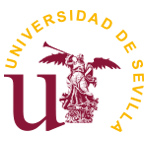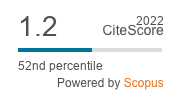Algunos desafíos y soluciones para la formación docente francesa en los albores de la creación de las ESPE
Keywords:
Formación docente, ESPE, Inteligencia colectiva, Reforma, DesafíoAbstract
En vísperas de la inauguración de las nuevas Escuelas Superiores del Profesorado y de Educación (ESPE - Ecoles Supérieures du Professorat et de l’Education) este ensayo considera tres aspectos de mayor relevancia para integrar la formación docente francesa a sociedades del conocimiento que se ajusten a los cambios fomentados por los nuevos medios de comunicación. Abarca aspectos culturales (histórico, ideológico y ciudadano), socioeconómicos y educativos (cognitivo, creativo y tecnológico) para pensar algunas de las particularidades del contexto francés.
Abstract
On the eve of the opening of the new High Schools and Teacher Education (ESPE - Ecoles Supérieure du Professorat et de l'Education), this paper considers three relevant aspects to integrate French teacher training into knowledge societies that meet changes fostered by new media. This paper covers cultural (historical, ideological and civic), socioeconomic (cognitive, creative and technological) and educational aspects to think about some of the peculiarities of the French context.
Downloads
Downloads
Published
How to Cite
Issue
Section
License
Authors who publish in this journal accept the following conditions:
Authors conserve the copyrights and cede to the journal the right for first publication, with the work registered with the attribution licence of Creative Commons, which allows third parties to use the published work as long as they mention the authorship and the first publication in this journal.
The authors may make other independent and additional contractual agreements for the non-exclusive distribution of the version of the article published in this journal (e.g. include it an institutional repository or publish it in a book) as long as it clearly indicates that the work was first published in this journal.
Authors are allowed and indeed recommended to publish their work on the internet (for example on institutional or personal pages) before and during the revision and publication process, because it can lead to productive exchanges and greater and faster dissemination of the published work (see The Effect of Open Access).
Accepted 2016-04-12
Published 2016-04-12
- Abstract 653
- PDF (Español (España)) 112










